Abstract
For many years, a moderate to high prevalence of positive reactions to standard tests for syphilis (STS) has been found in sera from the aboriginal inhabitants of the Northern Territory of Australia. In the survey reported here, people living in 18 areas of the Northern Territory were sampled to determine if the positive STS results were due to treponemal infection and, if so, to what extent this was endemic syphilis, yaws, or venereal syphilis. The results of the Treponema pallidum immobilization test were taken to indicate the presence or absence of treponemal disease in the subject. Clinically, no cases of active treponemal infection were seen, though findings on old infections were difficult to interpret in the older age groups. The prevalence of treponemal infection varied from 3.4% to 58.0% in the areas tested. No serological evidence of treponemal infection in children under 15 years of age was found in 6 areas, while in 12 areas it varied from 2.2% to 32.6%. Sera from 60 people who had no clinical signs of treponemal infection gave high-titre CWR and VDRL test results. It was concluded that yaws, endemic syphilis, and probably venereal syphilis are to be found in the aboriginal population.
Full text
PDF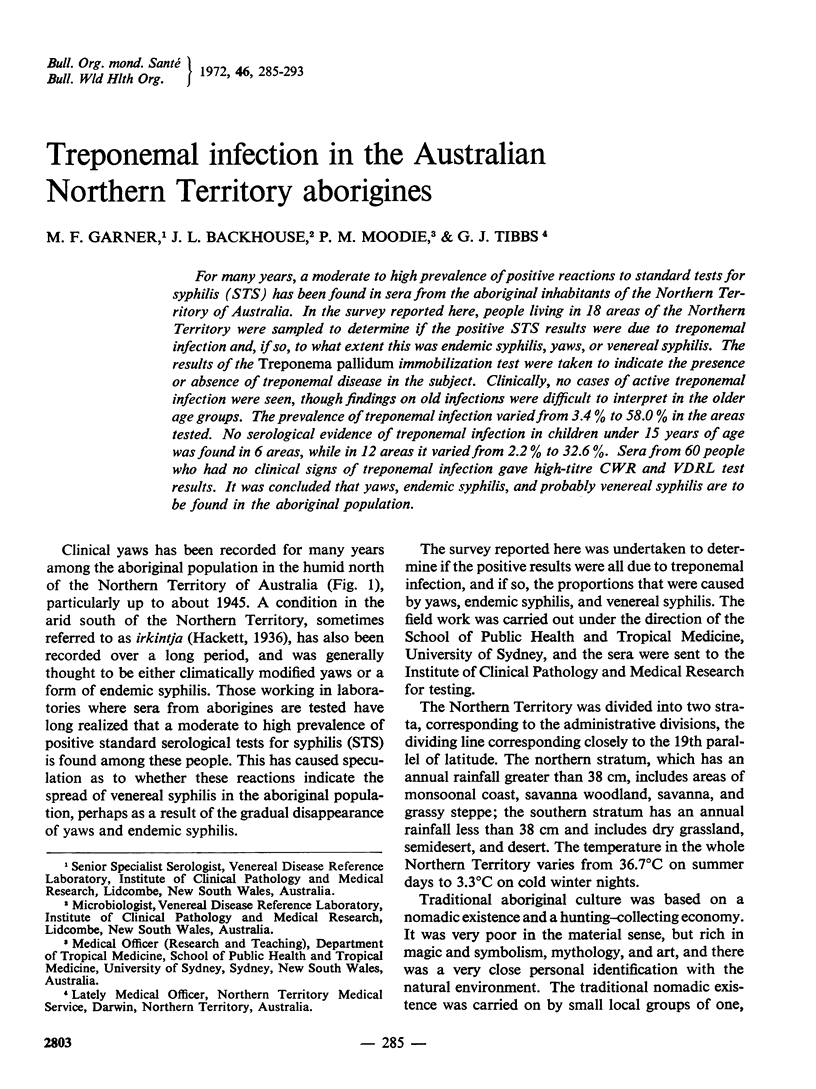
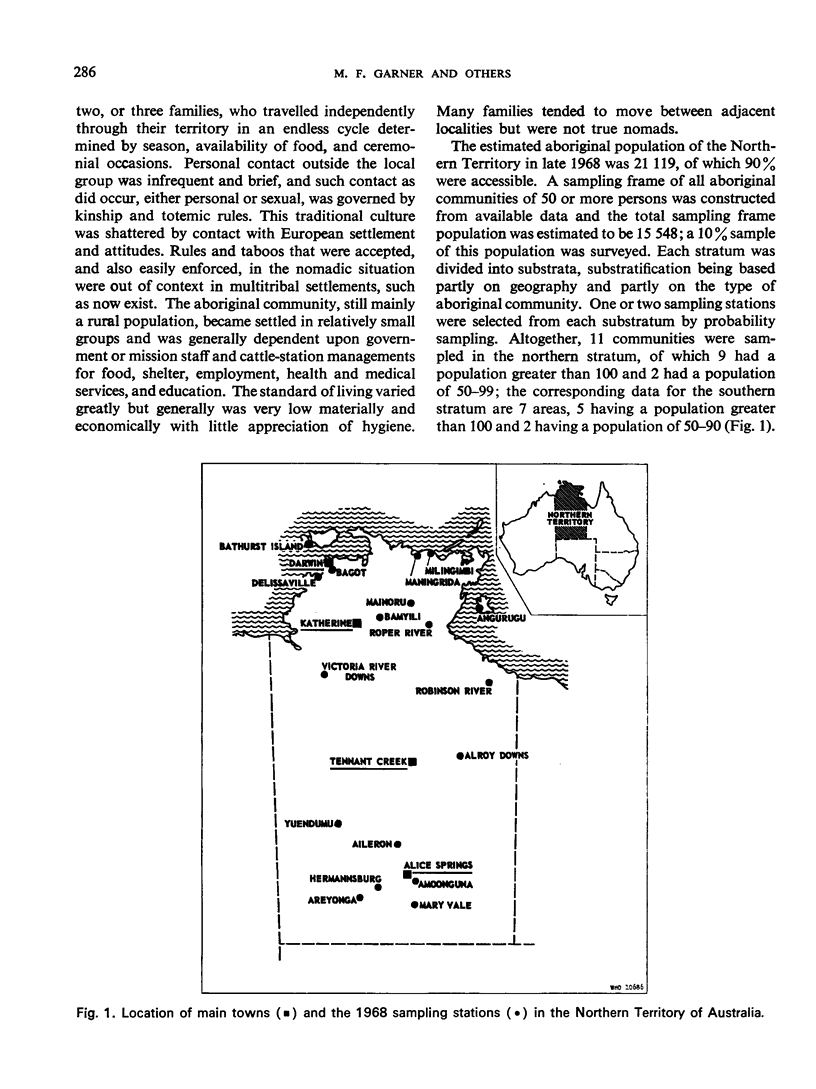
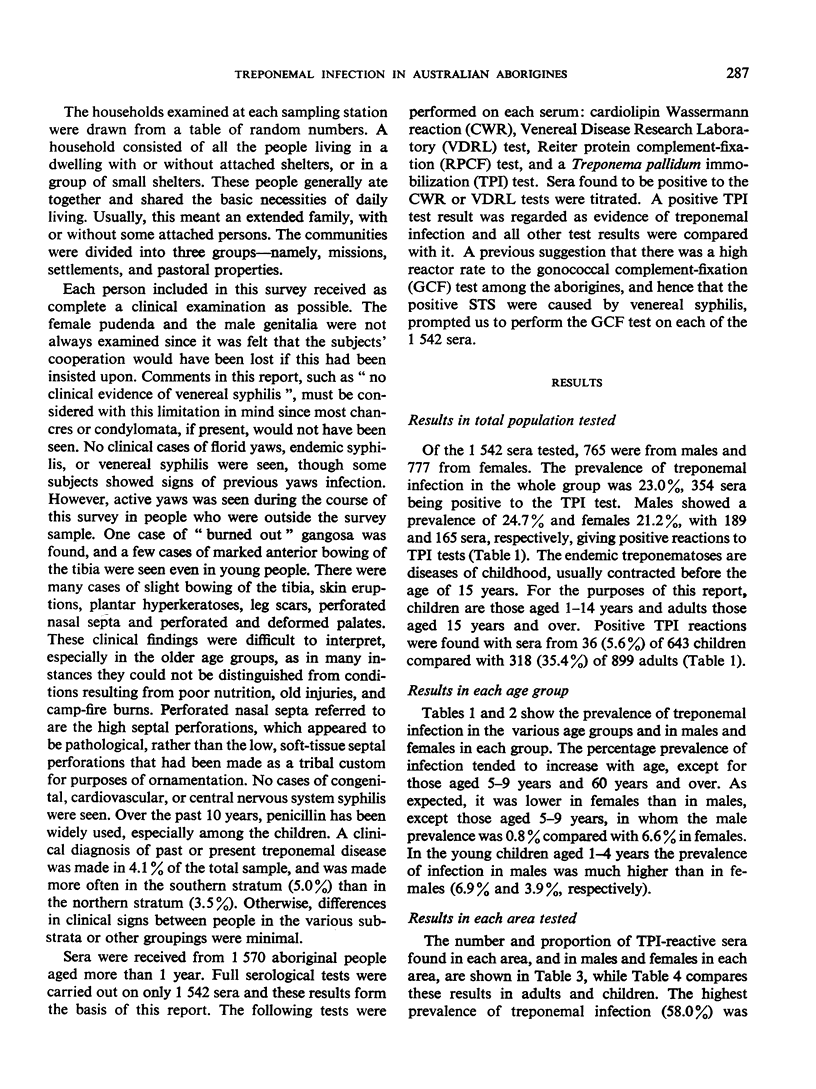
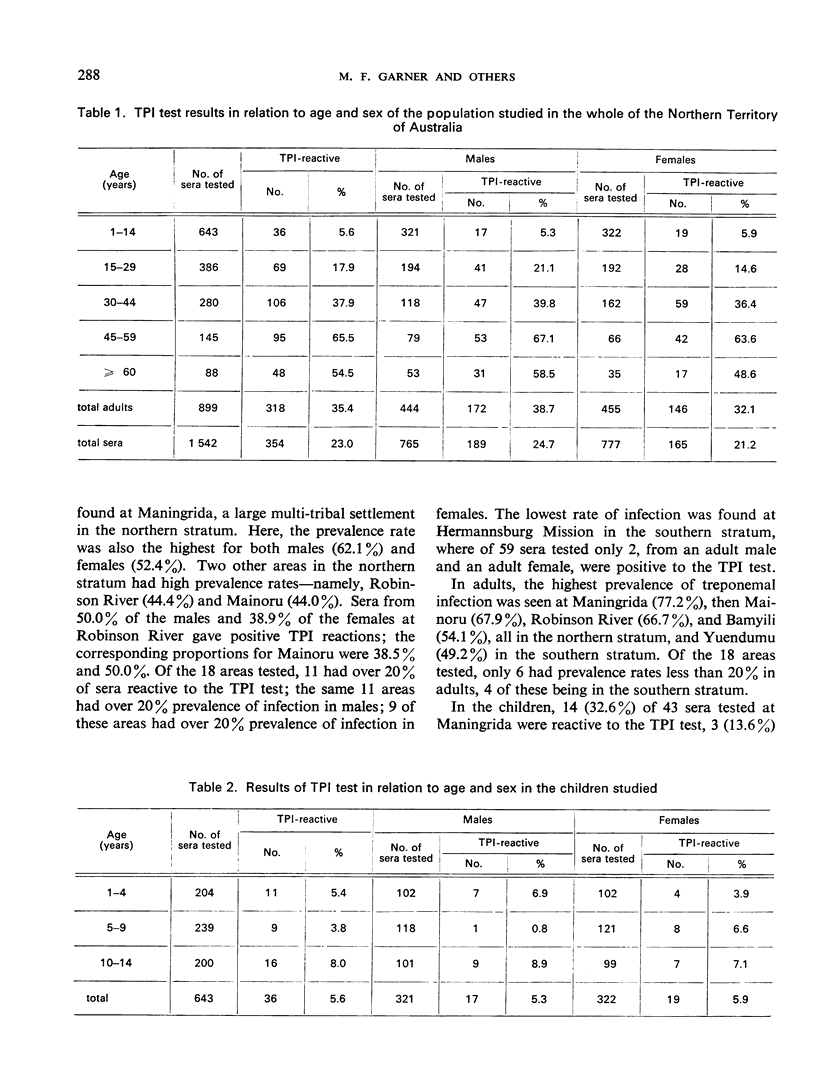
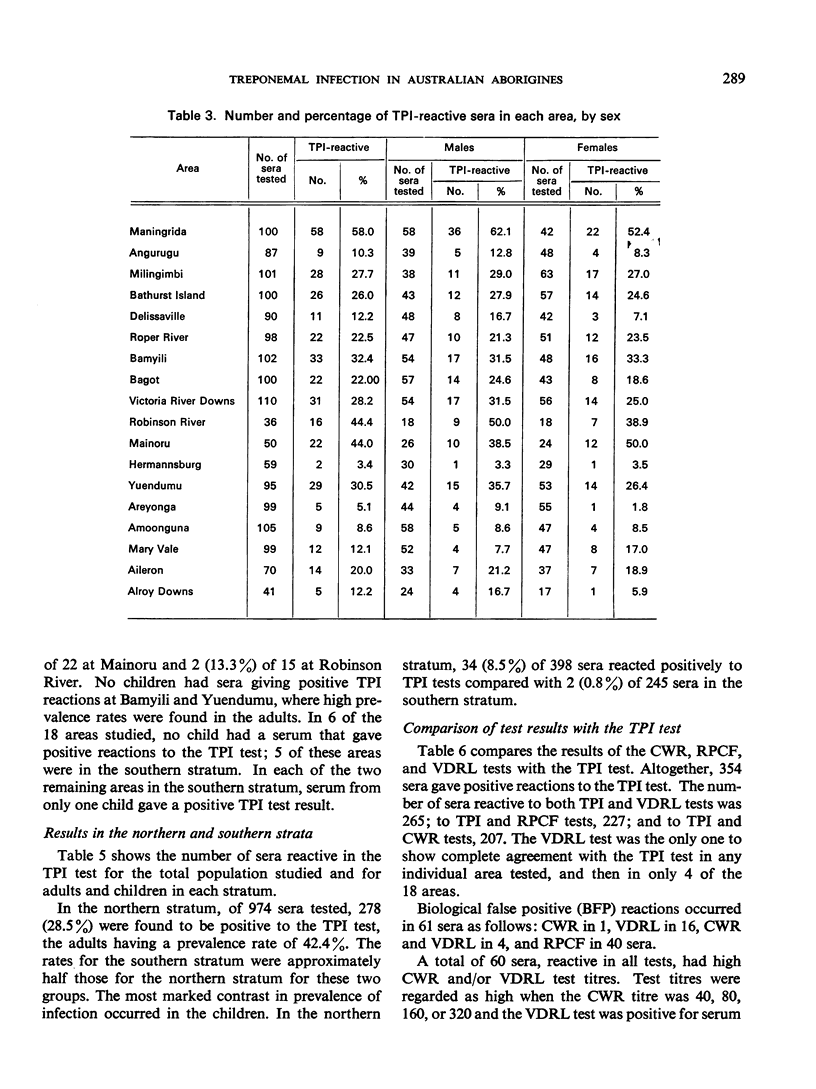
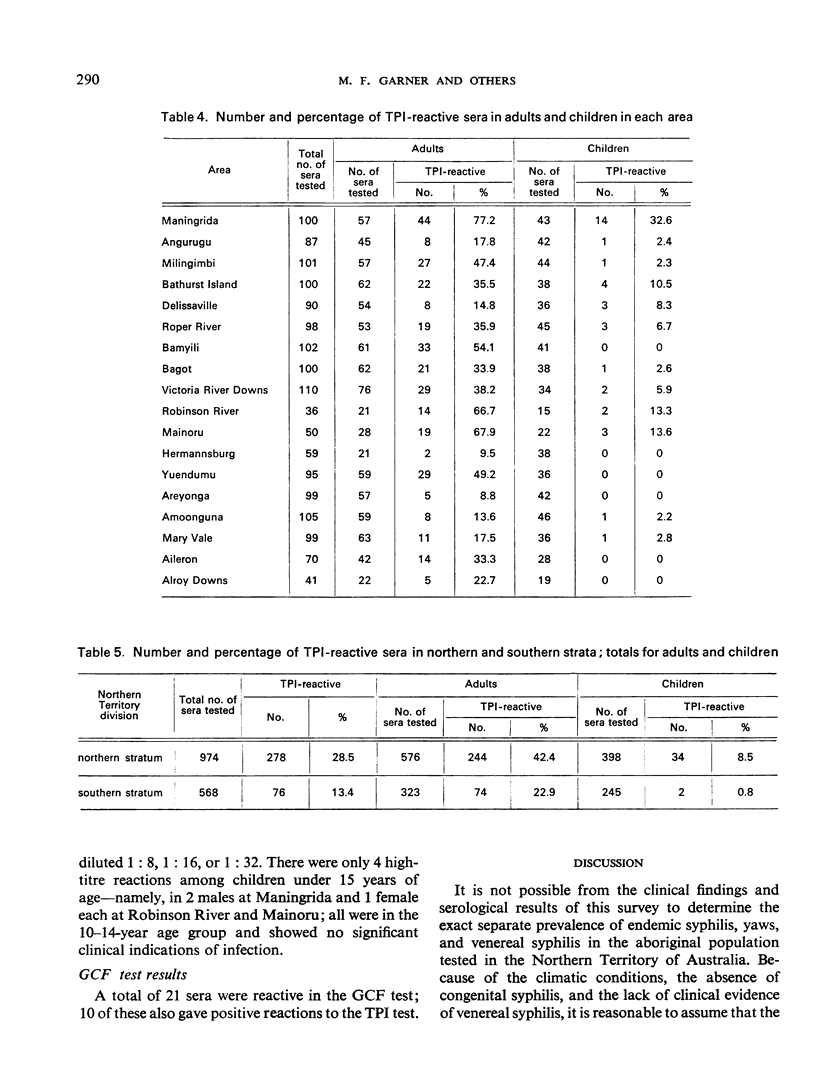
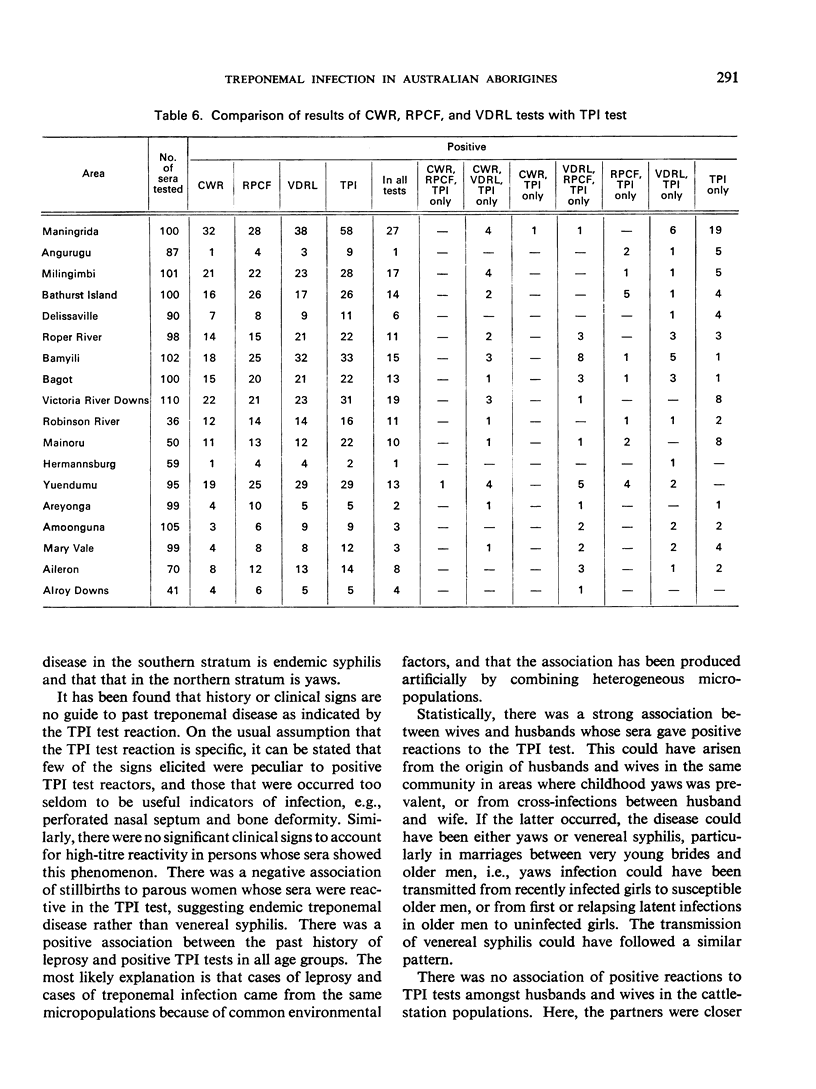
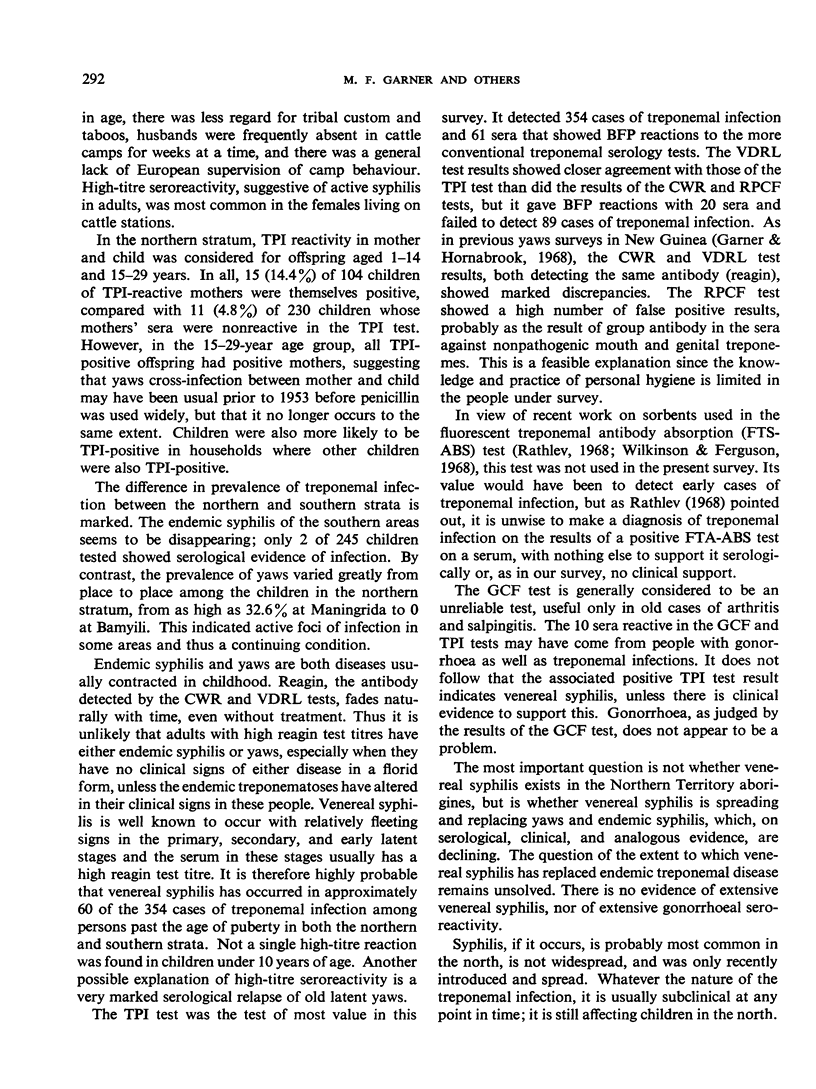
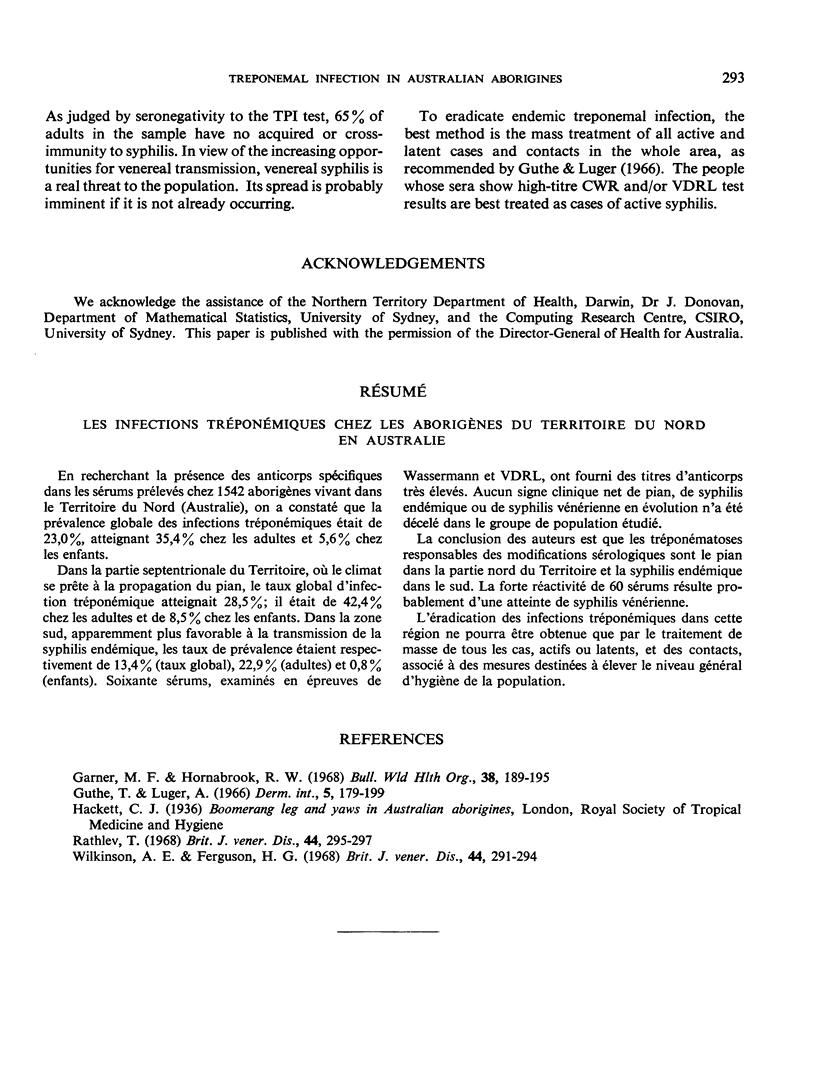
Selected References
These references are in PubMed. This may not be the complete list of references from this article.
- Garner M. F., Hornabrook R. W. Treponematosis in the eastern highlands of New Guinea. Bull World Health Organ. 1968;38(2):189–195. [PMC free article] [PubMed] [Google Scholar]
- Rathlev T. Evaluation of the sorbents used in the FTA-ABS test. Br J Vener Dis. 1968 Dec;44(4):295–298. doi: 10.1136/sti.44.4.295. [DOI] [PMC free article] [PubMed] [Google Scholar]
- Wilkinson A. E., Ferguson H. G. Some observations on the sorbing agent used in the absorbed fluorescent treponemal antibody (FTA-ABS) test. Br J Vener Dis. 1968 Dec;44(4):291–294. doi: 10.1136/sti.44.4.291. [DOI] [PMC free article] [PubMed] [Google Scholar]


